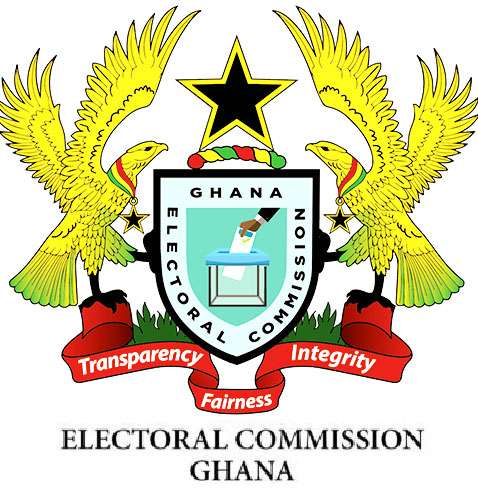Franklin Cudjoe, President of IMANI Africa, has criticized the Electoral Commission (EC) for its latest statement (dated 16th May 2024) on the disenfranchised SALL communities, accusing the EC of deliberately obscuring the truth and misleading the public.
He further noted that the EC’s recent statement disregarded all the concerns he previously raised about their actions on 6th and 7th December 2020, despite his detailed responses to their earlier <a href="http://<!– wp:paragraph –> <p>He indicated that none of the points made in his response to the EC’s <a href="https://thevaultznews.com/news/general-news/ec-sets-record-straight-on-sall-exclusion-debunks-imanis-false-claims/">14th May 2024 statement</a> (amended by a later 15th May 2024 statement) about the conduct of the EC on 6th and 7th December 2020 are addressed by the Commission in its recent statement.</p> statements on 14th and 15th May 2024.
As such, he argued that the Commission’s excuse, attributing its actions to the Ministry of Local Government and Rural Development’s district creation, is a constitutional betrayal and a show of irresponsibility, exposing the Commission’s disregard for the Constitution and its duties.
“Article 47(1) makes clear the responsibility of the Electoral Commission in respect of the creation of constituencies: ‘Ghana shall be divided into as many constituencies for the purpose of election of members of Parliament as the Electoral Commission may prescribe, and each constituency shall be represented by one Member of Parliament’. Nowhere in the clauses of that article or the Constitution is it provided that upon the creation of a district by the Ministry of Local Government and Rural Development, the Commission is to create a constituency”.
Franklin Cudjoe
Moreover, Franklin Cudjoe noted that the Commission had already assigned SALL Traditional area voters to the Hohoe Constituency for the 2016 election, making the current disenfranchisement efforts even more unjustified.
As such, he cited Article 47(5) of the Constitution, which stipulates the criteria for the Commission’s constituency boundary reviews, as follows:
“The Electoral Commission shall review the division of Ghana into constituencies at intervals of not less than seven years, or within twelve months after the publication of the enumeration figures after the holding of a census of the population of Ghana, whichever is earlier, and may, as a result, alter the constituencies.”
Franklin Cudjoe further noted that the creation of a district by the Ministry of Local Government and Rural Development is not one of the triggers the Constitution allows for the Commission to review the constituencies which it has established for the holding of Parliamentary elections.
As such, he stressed that the Guan District’s creation does not mandate a constituency review by the Commission, as there is no constitutional duty to create a new constituency based on the Ministry’s letter announcing the district’s establishment.
He further noted that the creation of a constituency was impossible as Parliament could not have passed a Constitutional Instrument in time for the 2020 elections.
Moreover, he indicated that any boundary changes resulting from a review would only take effect after the next Parliament dissolution (6th January 2021), making them inapplicable to the 7th December 2020 election.
EC Failed to Fulfill Constitutional Duty
Franklin Cudjoe argued that the commission could have easily fulfilled its constitutional duty by using the existing 2016 constituency boundaries for the 2020 Parliamentary elections, rather than attempting to create new ones.

He noted that the Commission mistakenly relies on the Local Governance Act (sections 5(1)(c), 6, and 7) to educate the public, instead of referencing the Constitution, which clearly defines its responsibilities.
He dismissed the EC’s assertion that the Constitution and Local Governance Act mandate the creation of a new constituency with each new district, calling it a falsehood.
As such, he pointed out that there is no constitutional or legal requirement (in the Local Governance Act) to create a new constituency whenever a new district is formed.
“In offering its interpretation of the Local Governance Act to justify its misconduct, the Commission also ignores the fundamental legal point that provisions in a statute cannot override the provisions of the Constitution! In none of the statements of the Electoral Commission do we read about Article 47 of the Constitution and other important constitutional provisions on the role of the Commission”.
Franklin Cudjoe
Furthermore, Franklin Cudjoe noted that the EC’s statement ends with a quote from the Attorney-General, who blamed Parliament for the Guan District’s creation, deflecting responsibility from the Commission.
He stated that the Attorney-General argued that voters from SALL Traditional areas should have been allowed to vote in Buem, noting that the EC using that same argument to justify its actions, is ironical as the same reasoning was used in a lawsuit seeking to nullify Honorable Kofi Adams’ election as Buem’s MP.
“According to paragraph 10 of the 16th May 2024 statement of the Electoral Commission, had the Commission ‘left residents of the Guan District to vote for an MP in the Jasikan District/Buem Constituency, the election of the MP for the Buem Constituency would have been in violation of an Act of Parliament, Act 936, as the MP would have illegally become a member of more than one District Assembly, the Guan District Assembly and the Jasikan District Assembly.’ So, the Electoral Commission is not on the same page as the Attorney-General after all”.
Franklin Cudjoe
Franklin Cudjoe maintained that The Electoral Commission’s failure to comply with Article 47 and its violation of Articles 47(5) and (6) is inexcusable, as it prioritized creating a new constituency over using the existing one for SALL Traditional area voters.
As such, he emphasized that the facts are clear that the people of SALL were disenfranchised by the Electoral Commission.





















